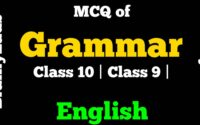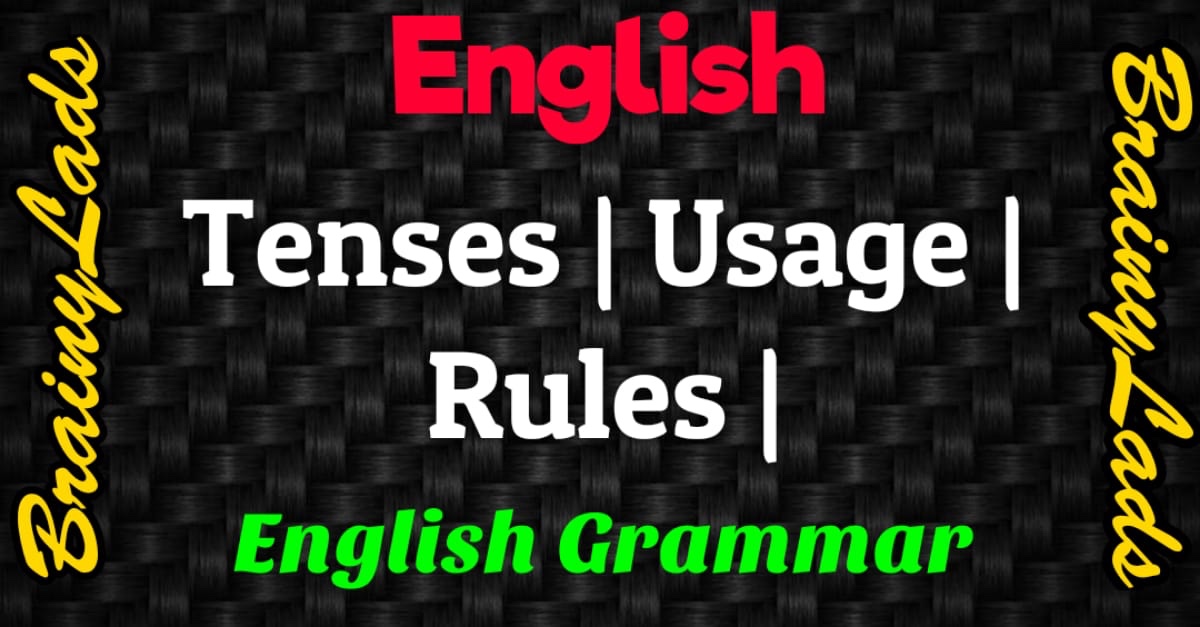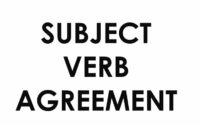Modals in English Grammar | How to Use Modals | Exercises |
Table of Contents
Modals in English Grammar | How to Use Modals | Exercises |
What are Modals?
Modals are different from normal verbs. They are auxiliary verbs that always carry a main verb with them. They show how sure we are about something or how possible something is. Modals can also show if someone wants to do something, if they have to do something, or if they can do something. Let’s read Modals in English Grammar one by one.
List of the Modals in English Grammar is given below:
- Will
- Would
- Shall
- Should
- May
- Might
- Can
- Could
- Must
- Have to
- Need
- Ought
- Dare
- Used to
Uses of ‘Will’
1) ‘Will’ expresses future and often used with second and third person as subjects.
For e.g. She will get married to her beloved.
2) It is used to expresses willingness, intention, promise, determination and threat with the first person as a subject.
For e.g. I will kill you. (Threat)
3) It is also used to request or to confirm
For e.g. Will you be there at six?
Uses of ‘Would’
‘Would’ expresses past habits, wish, polite request, preference and a hypothetical (imaginary) condition. It is used in the place of ‘Will’ when used in past tense.
Examples :
1) He would get up early in the morning and go to gym. (Past habits)
2) I wish I were there. (Wish)
3) Would you mind my sitting with you? (Polite request)
4) I would rather have coffee than tea. (Preference)
Uses of ‘Shall’
1) ‘Shall’ expresses future and often used with first person as subject.
2) It is used to seek advice, suggestions, requests, etc. with the first person (I) in interrogative sentences.
3) It is used to expresses willingness, intention, promise, determination and threat with the first person as a subject.
Examples :
1) We shall go to gym tomorrow. (Pure Future)
2) Shall I bring some fresh juice for you? (Request)
3) Shall I open the door? (Advice)
4) Shall we go for a movie tonight? (Suggestion)
5) You shall get a reward for what you have done for this project. (Promise/ Assurance)
7) You shall leave the room now. (Command)
8) They shall not win the match. (Determination)
Uses of ‘Should’
1) Should is used to express duty, obligation, advice or desire.
2) Should is used to express logical assumption, possibility or probability.
3) Should is used to express a purpose and often used after ‘lest’.
4) Should is also used to take approvals.
Examples
1) We should go to work every day. (Duty)
2) You should obey traffic rules. (Obligation)
3) You should get up early and exercise. (Advice)
4) He should be drinking at the bar. (Possibility)
5) If he should see me here, he will not be happy. (Probable Condition)
6) Work hard lest you should fail. (should after lest)
Uses of ‘May’
May is used to take permission, express possibility, wish, faith or a purpose. It is also followed by ‘So that’ when talked about purpose.
Examples
1) It may rain in the evening. (Possibility)
2) May I go now, madam? (Permission)
3) May God bless you. (Wish)
4) He works hard so that he may get promoted. (Purpose)
Uses of ‘Might’
Might is used to express least possibility or a guess. It is used in the place of ‘May’ when used in past tense.
Example
1) It might snow today. (Less possibility)
2) That might be at his in-laws home.(Guess)
Uses of ‘Can’
Can is used to express ability, possibility, capacity or to take informal permission.
Examples
1) Can I go to the market? (Informal Permission)
2) Anyone can be smart. (Possibility)
3) He can lift 100 kg on his back. (Capacity)
4) She can easily be an IAS. (Ability)
Uses of ‘Could’
Could is used to express ability or capacity in the past, polite request or a possibility. It is used in the place of ‘Can’ when used in past tense.
Examples
1) He could run very fast when he was young. (Ability/ Capacity in the past)
2) Could you switch off your mobile for a minute? (Polite request)
3) Had we got money, we could have bought that car. (Possibility)
Uses of ‘Must’
Must is used to express compulsion, obligation, necessity, duty, advice, possibility, prohibition, determination, conclusion or certainity
Examples of Modal ‘Must’ are given below:
1) The children must obey their teachers. (Duty)
2) We must respect our nation and its laws. ( Duty)
3) They must follow the orders of their parents. (Obligation)
4) I must start on time. (Necessity)
5) He must leave now if you want to save him. (Compulsion)
6) You must not abuse anyone in public. (Prohibition)
7) He must have stolen that amount. (Certainty)
Uses of ‘Have to’
‘Have to’ is used in the sense of compulsion, necessity or helplessness.
Examples
1) I have to leave my office at 6:30 pm. (Compulsion)
2) You have to leave that job. (Necessity)
3) I have to marry her though she has an affair with someone. (Helplessness)
Uses of ‘Need’
Needs shows necessity or compulsion in the affirmative sentences and vice versa. It is never followed by ‘To’ if used with need in negative sentences.
Examples
1) You need to work to keep my body and soul together. (Necessity)
2) You need not talk to her if she is rigid. (Need not never followed by to)
Uses of ‘Ought’
”Ought’ is used to express the obligation/duty and to advise others of their duty.
Examples
1) You ought to drive carefully. (Duty)
2) We ought to pay taxes for our nation’s growth and GDP. (Obligation)
3) You ought to study at a stretch if you want to pass the exam. (Advice)
Uses of ‘Dare’
‘Dare’ is used to show courage and audacity. It is never followed by ‘To’ when used in negative sentences.
Examples
1) How dare you talk to me like that? (Interrogative)
1) I dare not argue with my dad. (Negative)
Uses of ‘Used to’
‘Used to’ is used to express past habits and to highlight the existence of something in past.
Examples
1) I used to learn swimming everyday. (Past Habits)
2) There used to be a temple here long ago.(Existence of something in past)
Exercise For Modals
1) I _____ kill you if you don’t follow my orders.
a) shall
b) will
c) will have
d) shall have
Answer: Will
2) _____ I open the door for you?
a) shall
b) will
c) will have
d) shall have
Answer: Shall
3) She should not have ______ to him last year?
a) marry
b) marriage
c) marrying
d) married
Answer: Married
4) He dared not _____ to me like that.
a) to talk
b) talk
c) talking
d) talked
Answer: Talk
5) You ______ worry about your sister’s marriage. I will help you.
a) need not
b) need not to
c) needing not to
d) have needed not to
Answer: Need not
6) You ______ respect you national flag and learn your mother tongue.
a) has to
b) will had to
c) must
d) must not had
Answer: Must
7) You ____ win this match easily if you work persistently.
a) can’t
b) can
c) ought to
d) may not
Answer: Can
8) We _____ respect our parents no matter what the situation is.
a) must
b) need to
c) dare to
d) should have
Answer: Must
9) They ______ won the match easily had they practiced before the match began.
a) should have
b) could have
c) must have
d) would not have
Answer: Could have
10) ____ you mind mailing me the list of employees?
a) Should
b) Would
c) Could
d) Might
Answer: Would
11) ____ you lend me some money?
a) Should
b) Would
c) Could
d) Might
Answer: Could
12) What _____ we do now?
a) may
b) might
c) shall
d) should have
Answer: Shall
13) You don’t ______ to pick me up at the airport. I can get a cab.
a) has to
b) needed to
c) have to
d) needs to
Answer: Have to
14) It is biting-cold today. It _____ snow in the later half.
a) can
b) will have
c) might
d) may have
Answer: Might
15) Dad says we ____ watch TV after we have finished our food.
a) can
b) might
c) will have
d) will not have
Answer: Can
16) Had Ram auctioned his home timely, he _______ got a handsome price for that.
a) could have gotten
b) would had gotten
c) could had gotten
d) None of these
Answer: Could have gotten
17) New Zealand _______ batted first in the final of the World Cup 2021.
a) would has
b) should have
c) should had
d) None of these
Answer: Should have
18) _____ I enter the class? (Formal Permission)
a) Would
b) Must
c) May
d) Should have
Answer: May
19) We ________ follow all the rules and regulations of our country.
a) has to
b) would has to
c) ought to
d) ought to have
Answer: Ought to
20) You ______ visit your dentist at least once a year.
a) could
b) should
c) dare to
d) None of these
Answer: Should
# Modals in English Grammar Exercises
# Modals in English Grammar Notes
Do share this post if you liked Modals in English Grammar. For more updates, keep logging on BrainyLads.



